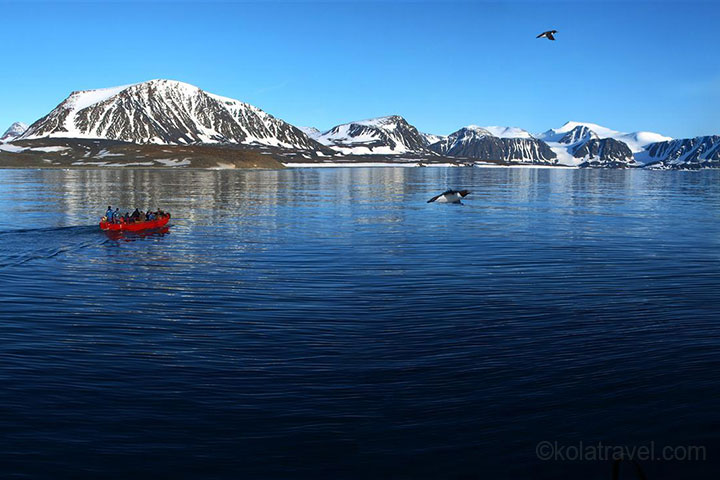
Welcome to Novaya Zemlya
Rich flora and fauna in the Arctic Russia.
Novaya Zemlya (New Land) is a mountainous archipelago in the Arctic Ocean that comprises fascinating landscapes, unique Arctic flora and fauna and historical
places. Novaya Zemlya consists of two large islands, Severny (northern) and Yuzhny (southern), separated by a narrow strait (2-3 km) Matochkin and a
plurality of relatively small islands, the largest of which - Mezhdusharsky. The strait also separates the north arctic desert landscape from the southern
tundra. The mountains and glaciers of Novaya Zemlya are very impressive and worth to see.
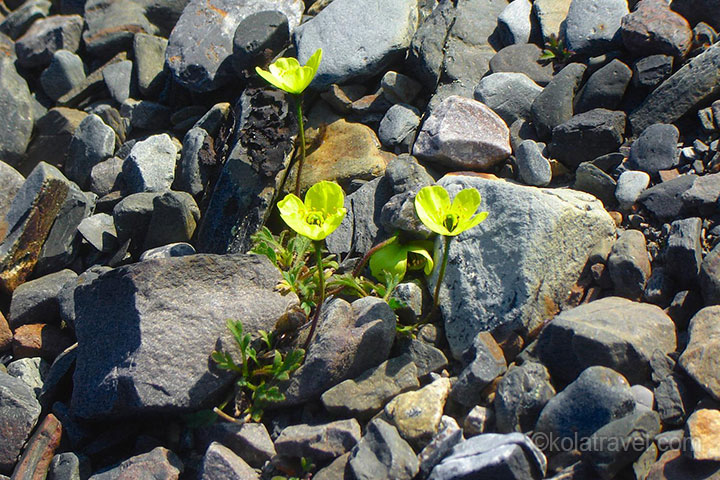
The flora and fauna on the islands are quite similar.
Typical plants are creeping willow, purple mountain saxifrage, avens, mountain lichens and Arctic Sweet Grass. Vegetation in the southern part is in
most dwarf birch , moss and low grass, in areas near rivers, lakes and bays grows many fungi; different kinds of mushrooms.
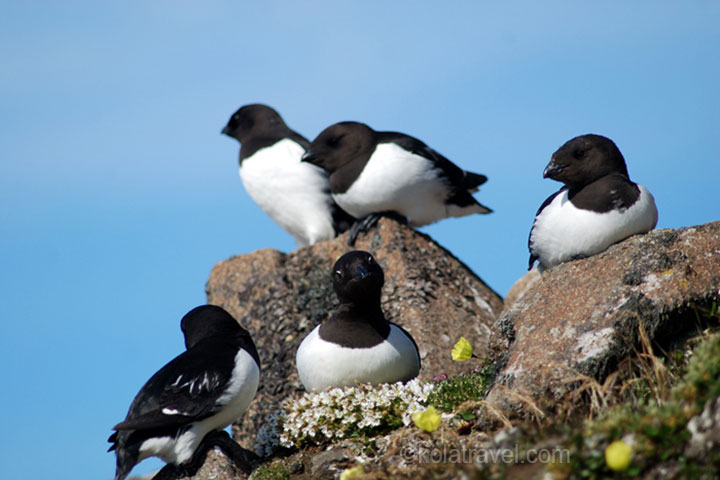
The birdlife of Novaya Zemlya is very rich:
spotted species are different colonies of Sea Gulls, Guillemots, Puffins, Pomarine Skua, Little Stint, Black-throated Diver, Yellow-billed Loon, White-fronted Goose,
Tundra (small) Swan, Red-breasted Merganser, Sandpiper, Plover, Short-tailed and Long-tailed Skuas, Peregrine Falcon, Tundra Redpoll, Lapland Bunting, White Wagtail and Snow Owl.
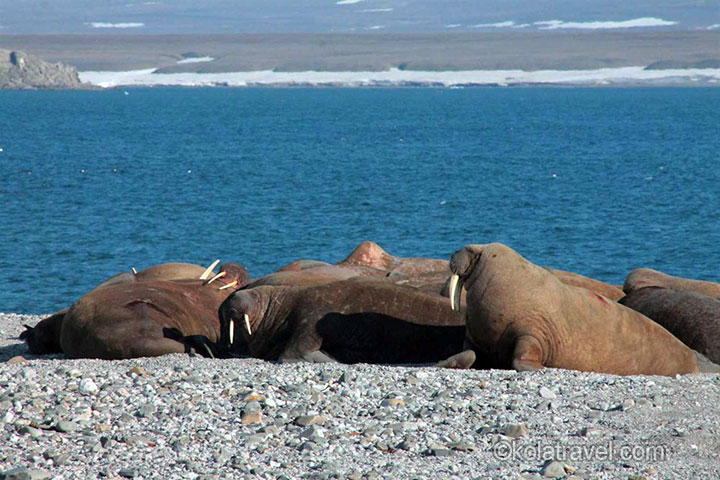
Polar Bears, Reindeers and Arctic Foxes are common on Novaya Zemlya as well Lemmings and Ptarmigans. Marine animals found on Novaya Zemlya are Harp Seal,
Ringed Seal, Bearded Seal, Walrus and whales. Freshwater fish in the Novaya Zemlya rivers and lakes are mostly presented by Arctic Char.
The Russians knew of Novaya Zemlya from the 11th century, when hunters from Novgorod visited the area. For western Europeans, the search for the Northern
Sea Route in the 16th century led to its exploration. The first visit from a west European was by Hugh Willoughby in 1553, and he met Russian ships from the
already established hunting trade. Dutch explorer Willem Barents reached the west coast of Novaya Zemlya in 1594, and in a subsequent expedition of 1596
rounded the Northern point and wintered on the Northeast coast. Willem Barents died during the expedition, and may have been buried on the Northern island.
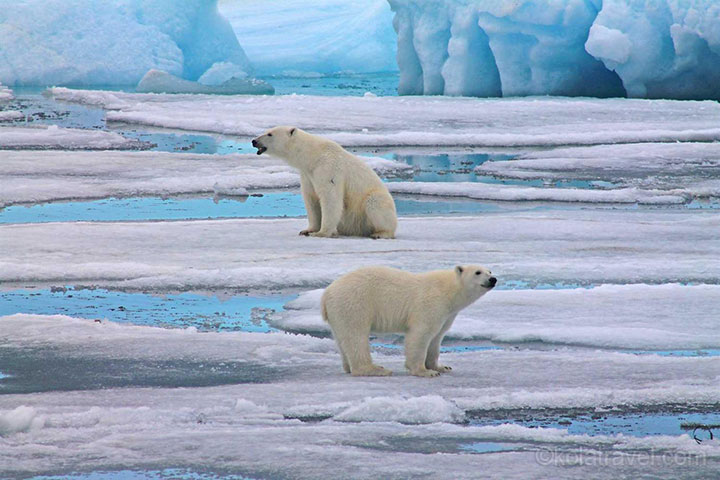
To preserve the natural systems and the most valuable objects of Novaya Zemlya the National Park "Russian Arctic" was established in 2009.
In 2010 Nature Reserve Franz Josef Land joined the National Park. Russian Arctic is the so called "Gem of the Arctic".
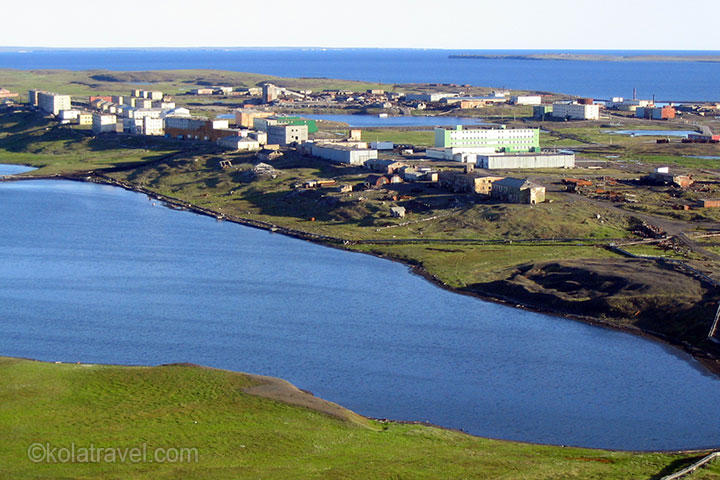
City Belushya Guba is the capital of Novaya Zemlya District situated on the southwest part of South Island. The whole Novaya Zemlya archipelago, including
Belushya Guba, is an area of restricted access (formally, as part of border security zone), and a special permit is needed to visit the archipelago.
We can take care about this.
For more detailed information about Novaya Zemlya we refer to Wikipedia page: Novaya Zemlya.



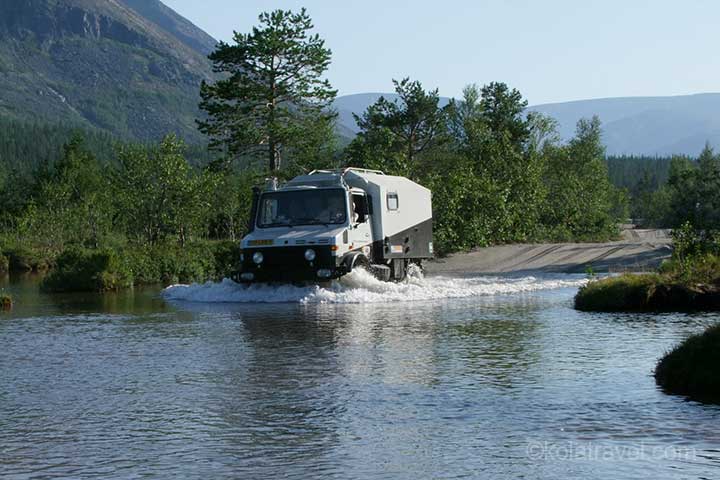
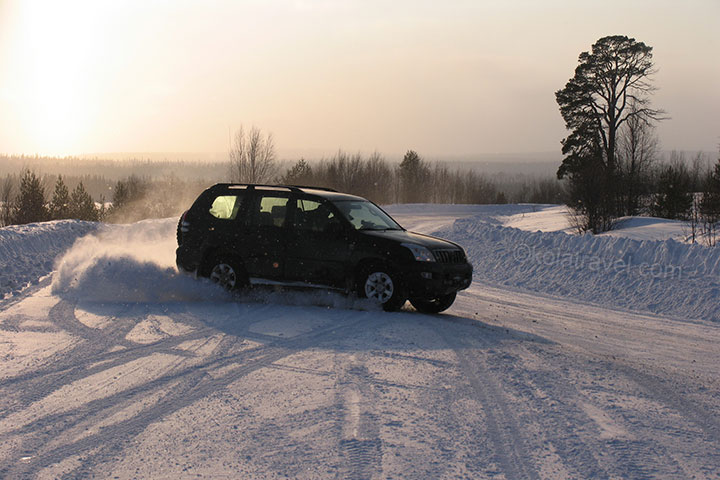
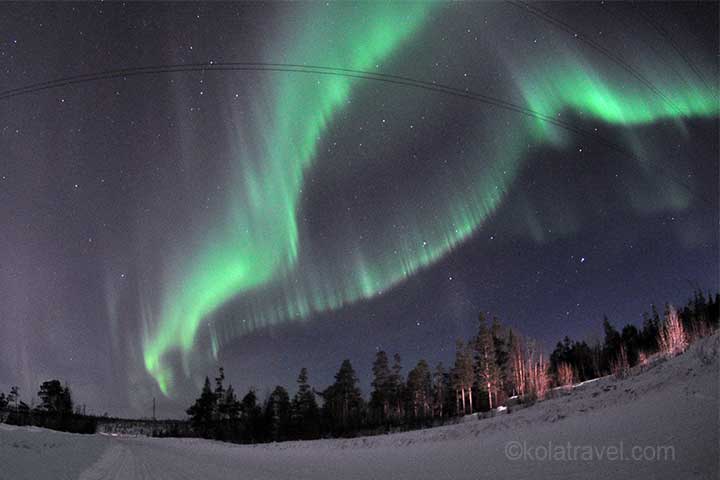

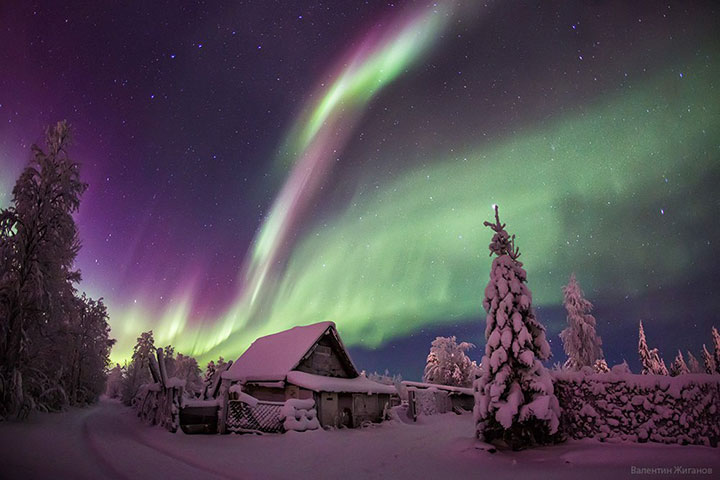
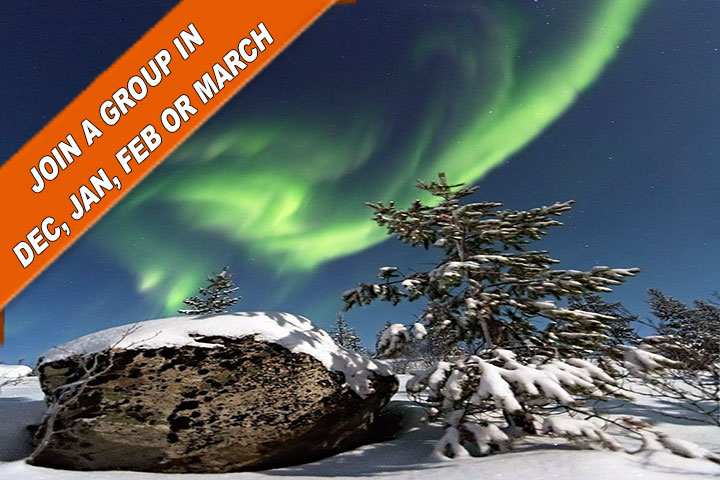
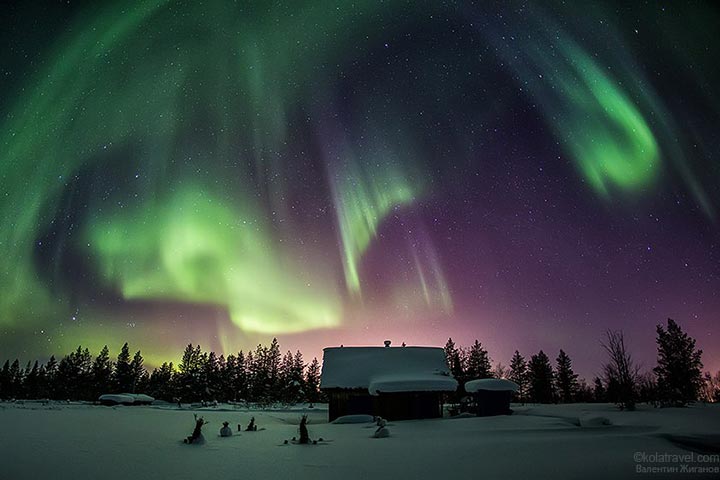
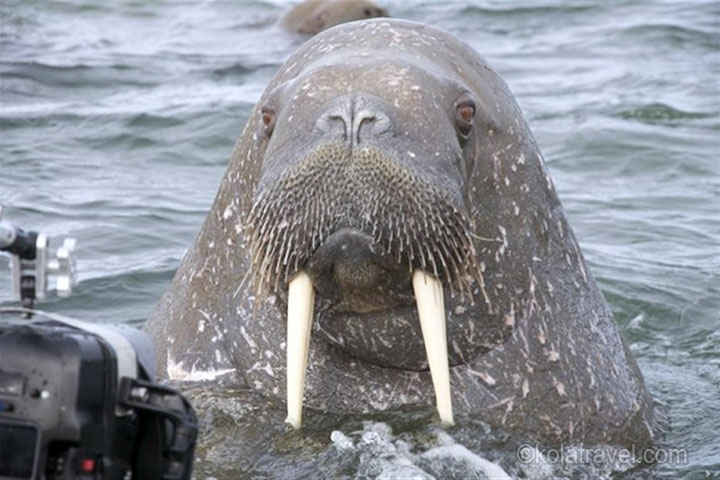
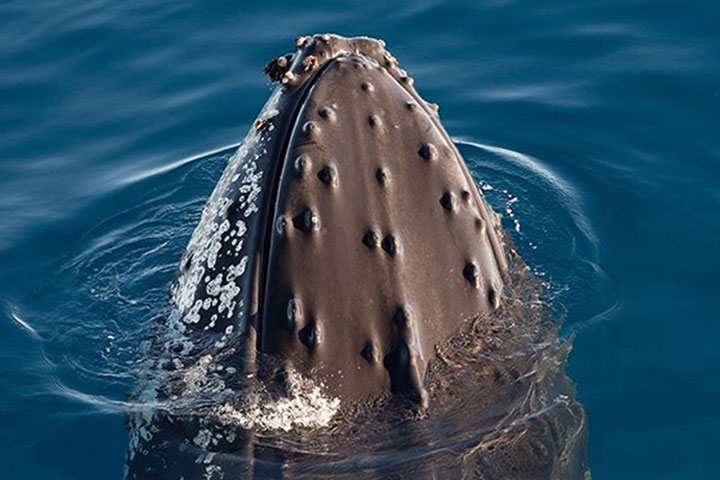
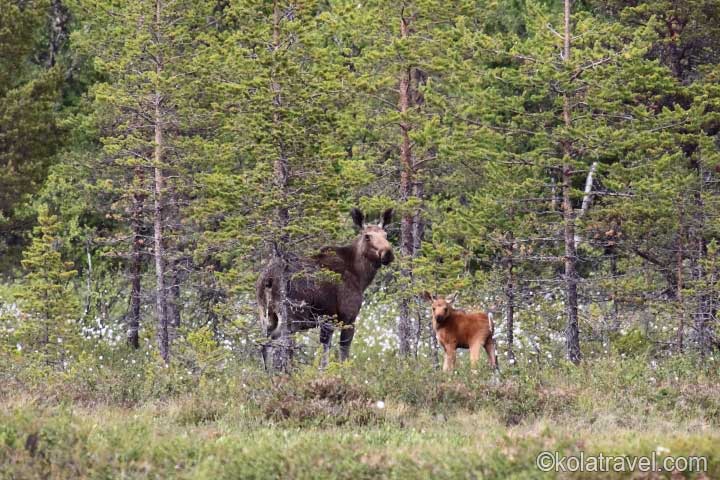
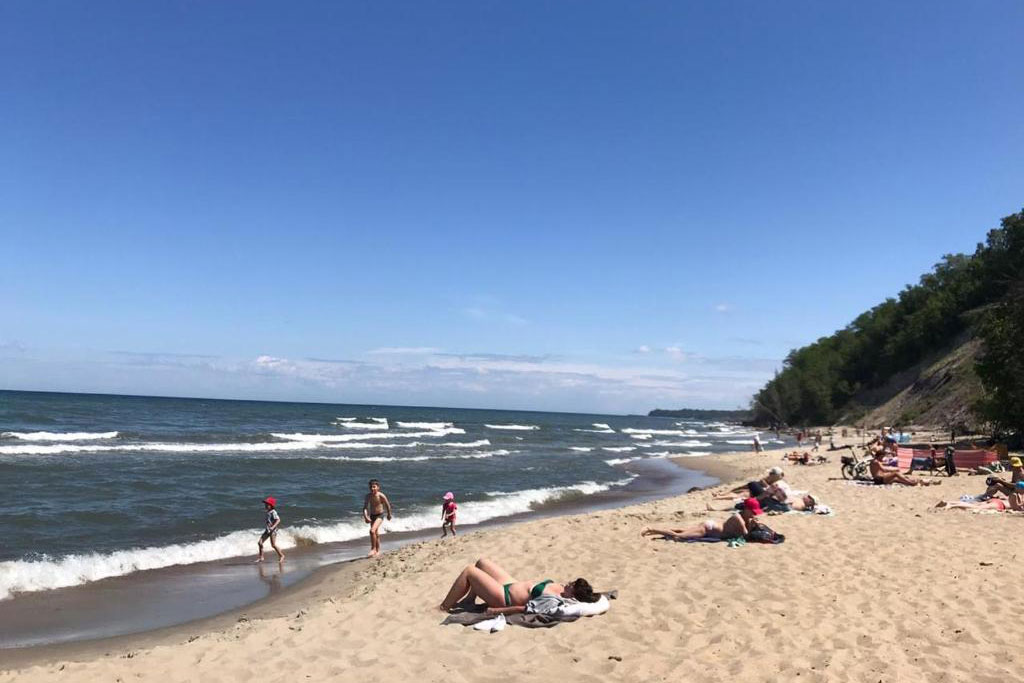






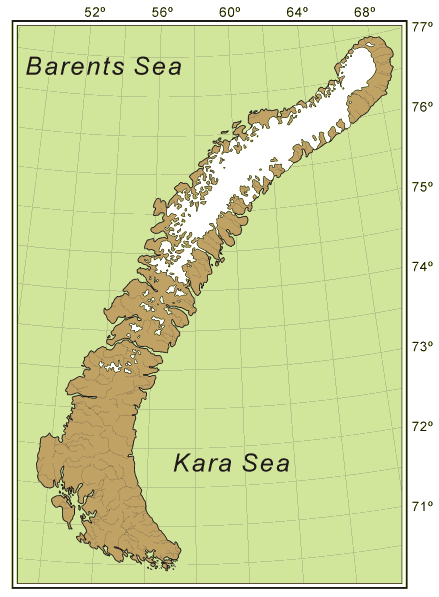



 TripAdvisor
TripAdvisor
